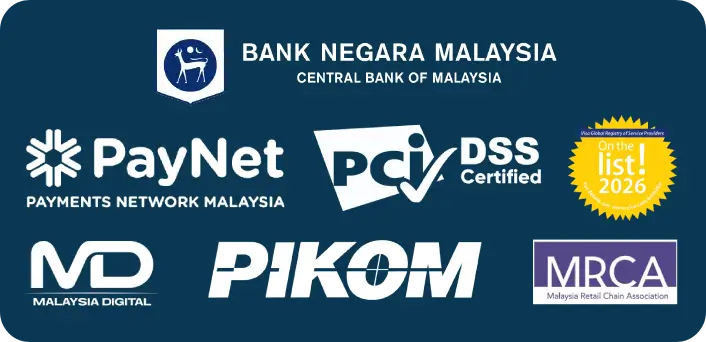
If it feels like more businesses are opening, expanding, or hiring lately that’s not just your imagination. Earlier this year, Malaysia pulled in RM89.8 billion in approved investments during the first quarter alone. That’s just three months. The last time the numbers were this strong was before the pandemic.
Most people might scroll past that kind of news, but this one is worth a closer look. It’s not just good news for big corporations. It actually matters for small businesses, startups, freelancers, and even online sellers.
Here’s what’s really going on and what local businesses can do to ride the wave.
The Money Isn’t Just Going to Big Factories
When most people hear “foreign investment,” the mind usually goes to oil, cars, and high-tech factories. But this time, a lot of the money is going into the services sector which includes:
- Education & tuition centres
- Health & wellness clinics
- Delivery & logistics companies
- Retail stores (online or physical)
- Digital platforms, apps, and freelancers
- Financial and consulting services
In short, it’s going to regular businesses. The kind you see in neighbourhoods, malls, or even TikTok ads. These are the businesses that real people are running — and that real customers are using.
What This Means for Small Business Owners
This RM89.8 billion boost doesn’t just mean “the economy is strong.” It means business is picking up and things are going to move faster.
Here’s what to expect:
1. More competition
More new businesses will pop up. The ones already running will upgrade their services. It’s going to be harder to stand out if things like payments, service, or online presence are still outdated.
2. Customers will expect more
People are used to speed and convenience. They expect to pay by card, by QR code, or with an e-wallet — even at a neighbourhood shop. If payments are hard, they’ll go elsewhere.
3. Everything’s going digital
Even tuition centres and clinics now need online booking, mobile payments, and proper receipts. Digital tools are no longer “nice to have” — they’re part of how people expect to do business.
A Good Payment System Makes Life Easier
With this kind of growth, businesses need to start thinking about the small systems that make the day-to-day smoother, especially payments.
Here’s why:
- Customers pay faster when the options are easy
- Staff don’t need to chase receipts or WhatsApp screenshots
- SST (Sales and Services Tax) is easier to track
- Payouts are predictable, which helps with cash flow
- It saves time and stress, especially when it’s time to file reports or apply for loans
Where a Local Payment System Like Paydibs Comes In
A lot of local businesses from tuition centres to beauty salons should be using a payment gateway from Paydibs because it works across different setups: online, mobile, or in-store. The system also supports SST-compliant receipts, which is important now that more services are being taxed from July 2025 onwards.
Merchants can accept payments through FPX, credit cards, e-wallets, or QR and everything shows up clearly in one place. No juggling multiple apps or handwritten logs.
For businesses growing fast or dealing with more customers, having this kind of setup just makes things simpler.
Real-Life Example: Tuition Centre Expanding to Online Classes
Let’s say a tuition centre in Subang Jaya just got a small investment to grow. They’re opening a second branch and planning to offer online classes.
Here’s what they’ll need:
- Online checkout for students to pay class fees
- Smart terminal for walk-in payments
- SST-ready receipts for parents
- A system that tracks sales by branch
- Reports for tax and finance
- Flexible payment methods (card, FPX, GrabPay, etc.)
Instead of setting all this up separately, using a single payment platform that covers everything saves time, prevents mistakes, and looks more professional.
The Takeaway for Malaysian Businesses
This wave of investment isn’t something to watch from the sidelines. It’s a chance for local businesses to upgrade, expand, or clean up the way things run, especially in the back end.
And no need to overthink it. Start with the basics:
- Make it easy for customers to pay
- Use receipts that show tax clearly
- Track daily and monthly sales
- Get payout summaries that don’t need a calculator
- Avoid having to copy and paste numbers into Excel every week
Final Thoughts
RM89.8 billion in three months is no small thing. It shows that Malaysia is open for business and that growth is coming fast, especially for those in education, services, digital, and health.
Businesses that are prepared with proper tools, systems, and mindset are going to benefit the most.
Whether it’s handling SST, managing payments across platforms, or simply making life easier at the end of the month, having the right systems in place makes a big difference.
Frequently Asked Questions
1. What does Malaysia’s RM89.8 billion investment mean for small businesses?
It means more growth and competition. Businesses need to be ready with proper systems, payments, and digital tools to keep up.
2. Which sectors are getting the most investment in Malaysia?
Mostly services like education, digital platforms, logistics, wellness, and retail — not just big factories or corporate brands.
3. How can small businesses benefit from this investment wave?
By improving their operations, offering easier payment methods, going digital, and being ready for more customers.
4. Do I need to update my payment system for SST in 2025?
Yes, especially if your services are newly taxed from July 2025. A proper system helps you show tax clearly on receipts.
5. What should I look for in a payment solution as my business grows?
Look for something that handles online and in-person payments, supports SST receipts, tracks sales, and offers fast payouts.
6. How does investment growth affect how I accept payments?
With more businesses expanding and customers expecting convenience, having a fast, flexible, and digital-friendly payment system helps you stay competitive.
Recent Posts
Categories
Our Partners :





Paydibs is a leading payment solutions provider committed to simplifying transactions for businesses of all sizes.

